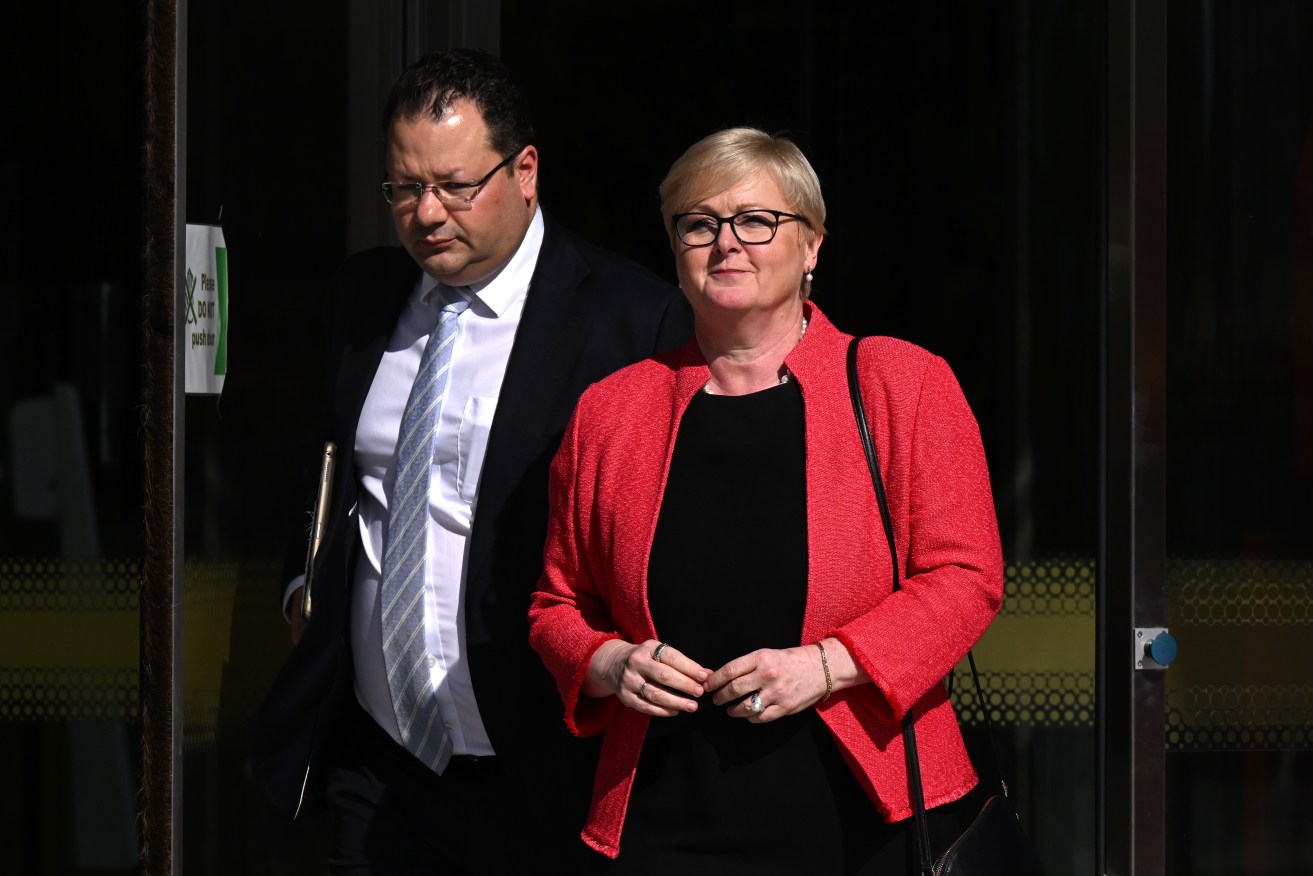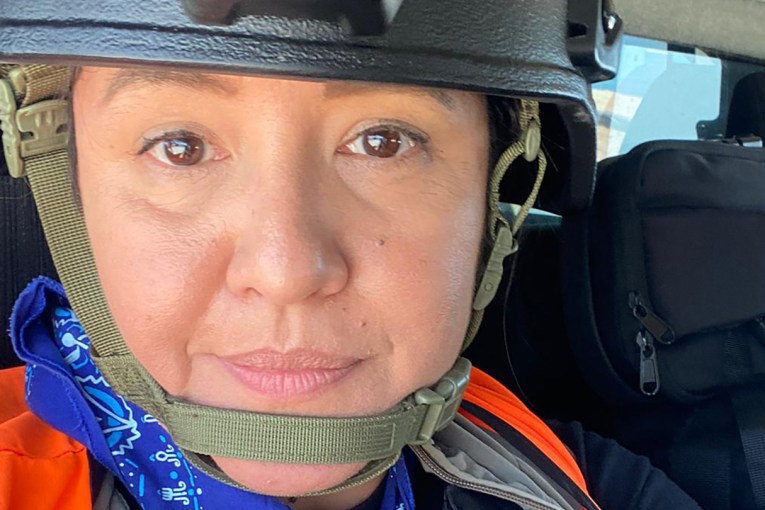‘Political forces’ in Lehrmann rape trial

Linda Reynolds denied the election was her main concern when Brittany Higgins raised her complaint. Photo: AAP
A senior politician has been accused of trying to interfere in a criminal trial in the dramatic final days of the Brittany Higgins rape case.
Jurors in the Bruce Lehrmann trial are still deliberating after retiring to consider a verdict.
Lerhmann has pleaded not guilty to sexual intercourse without consent.
In an extraordinary exchange before the jury was sent away, former cabinet minister Linda Reynolds was accused of attempted courtroom interference.
Senators Reynolds and Michaelia Cash, Ms Higgins’ former bosses, gave evidence at the ACT Supreme Court trial earlier this week.
Prosecutor Shane Drumgold accused Senator Reynolds, for whom Ms Higgins and Lehrmann once worked, of being politically invested in the outcome of the trial.
While she was in the witness box, it was revealed Senator Reynolds had sought access to the transcripts of Ms Higgins’ evidence because she was “curious” about what had been said.
She was told this request was “inappropriate” and did not receive the transcripts.
Mr Drumgold also revealed the senator had messaged Lehrmann’s defence team about a potential line of questioning two hours after Ms Higgins began her evidence.
He accused Senator Reynolds of trying to coach the cross-examination, a suggestion she denied.
It was also revealed Senator Reynolds’ partner has been sitting in court throughout the proceedings, but she denied he had relayed any details of the case to her.
Mr Drumgold put to Senator Reynolds that if she was motivated enough to attempt to interfere in the case in 2022, her dominant concern when Ms Higgins first raised her complaint in 2019 would have been the impending federal election.
“Absolutely not. I categorically and utterly reject that assertion,” Senator Reynolds said.
The senator told the court she had known few details about the night of the alleged assault, other than there had been a security breach of her ministerial suite.
She said Ms Higgins was apologetic and embarrassed about the breach.
When Ms Higgins became upset while disclosing details about waking up in the office the following morning and getting dressed, Senator Reynolds said she recommended talking to the police.
“I suggested to her that she might rather have this conversation with somebody more qualified and that she should talk to the AFP and I said that we’d be happy to facilitate that if she wanted to,” Senator Reynolds said.
Meanwhile, Senator Cash, for whom Ms Higgins worked as a media advisor following the 2019 election, also denied knowing about the allegation until two years later when media reports surfaced.
“The first time I ever heard of the word ‘rape’ was in response to questions from the journalist … on or about the 12th of February 2021,” she said.
Asked by Mr Drumgold if an alleged assault between ministerial staffers would be “politically embarrassing”, Senator Cash said “absolutely not”.
“I don’t know how it could be politically embarrassing. It’d be something that needed to be attended to,” she said.
When Lehrmann’s defence lawyer Steven Whybrow suggested it would be “political suicide” for a government to try and cover up a sexual assault allegation, Senator Cash agreed.
The court previously heard Ms Higgins talked to Senator Cash about the alleged assault several times during the course of her employment.
In his closing address, Mr Drumgold told the jury Ms Higgins was right to be scared in 2019 when she was considering making a police complaint against Lehrmann because of the “political forces” at play.
“It’s abundantly clear from the actions of Senator Reynolds during this trial that those political forces were still a factor,” he said.
“Something that happened cannot un-happen by Senator Cash’s denial of what she knew.
“We say (Ms Higgins) was right to be scared, she was right to be cautious and she was right to move slowly and carefully.”
In her instructions, Chief Justice Lucy McCallum reminded jurors that Lehrmann was presumed innocent unless or until his guilt is proven by the prosecution beyond a reasonable doubt.
She told the jury to act impartially, without emotion or prejudice and give a true verdict according to the evidence presented in the courtroom in the past three weeks.
“You are not answerable to popular opinion … whichever way you may think it sways,” she said.
“Your verdict, whether it be guilty or not guilty, must be unanimous.”
The chief justice warned the jury not to invoke any stereotypes they may hold about an event or situation they have not experienced personally, saying there was “no template” for life.
“Be careful about speculation and pre-conception … be careful not to make assumptions about how a person may behave in circumstances you have not experienced,” she said.
Lehrmann exercised his right to silence and did not enter the witness box during the trial. The jury was instead played his police interview.
Chief Justice McCallum said his decision not to give evidence in court could not be used as an admission of guilt and did not strengthen the prosecution’s case.
She also said Lehrmann’s agreement to do a police interview did not shift the burden of proof to him.
The jurors will continue deliberations until they can reach a unanimous verdict.
1800 RESPECT (1800 737 732)
Lifeline 13 11 14
– AAP








